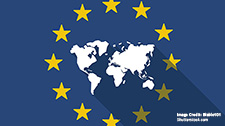Challenges Faced by TSMC and Its Suppliers in Expanding to Europe
Yi-Chieh Chen and Chung-min Tsai
The semiconductor shortage caused by the COVID-19 pandemic resulted in the European Chips Act (ECA). The ECA was first proposed in February 2022 aiming to double the European Union’s (EU) global market share in semiconductor manufacturing to 20 percent by 2030.* The ECA opens a door for Taiwanese companies to reposition their geopolitical strategy. In August 2024, the first Taiwan-invested semiconductor fabrication plant (fab) broke ground in Dresden, Germany. It will specialize in producing mature chips for automation and electrification in the automotive and industrial sectors. Taiwan Semiconductor Manufacturing Company (TSMC) and its suppliers’ overseas expansion in Germany and its neighboring countries are affected by ECA-mandated subsidies, Taipei’s foreign policy and the local business environment. Even though the construction of the fab in Dresden has started, the road is far from smooth.
This issue brief examines the hurdles in achieving profitability and sustainability by analyzing the political factors driving Taiwan’s semiconductor firms’ international expansion, TSMC’s struggles to navigate the business environment in Germany, and the hesitation of TSMC’s suppliers to expand in the EU. The challenges include high production costs, potential labor conflicts, lack of a local support system, and uncertain future market demand.
Related Publications
-
Taiwan’s Semiconductor Manufacturing Industry and Its Role in the International Supply Chain
Semiconductor products have emerged as the cornerstone of modern technology. The world’s critical dependence on semiconductors was highlighted during the shortage following the COVID-19 pandemic. Semiconductors are the materials and […]
-
Iran and Japan Relations in a Transitional World Order
Both the Japanese and Iranian foreign policies are under evolution. Given the changing global security environment, their foreign policy approach toward each other is continuously changing, and the Free and […]
-
ISDP Annual Report 2023
ISDP’s Annual Report for the year 2023. We look back on 2023, a year in which tensions and conflicts captured the strategic space in ISDP’s focus areas, making headlines around […]
-
NAVIGATING THE CHINA CONTEST: EU’S MARITIME ROAD TO 2030 AND MIDDLE POWERS
Europe’s strategic presence in the Indo-Pacific has become a matter of great substance in current global politics. The emergence of China as a disruptive maritime power, especially with its hardening […]
-
Decoding Japan’s Political Trajectory in 2024
As 2024 opens, Japan’s politics, particularly the fortunes of the ruling Liberal Democratic Party (LDP) led by Prime Minister Fumio Kishida, is witnessing an accelerated downward spiral. A week after […]



